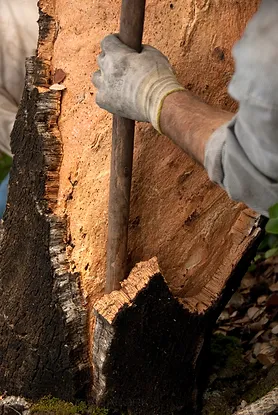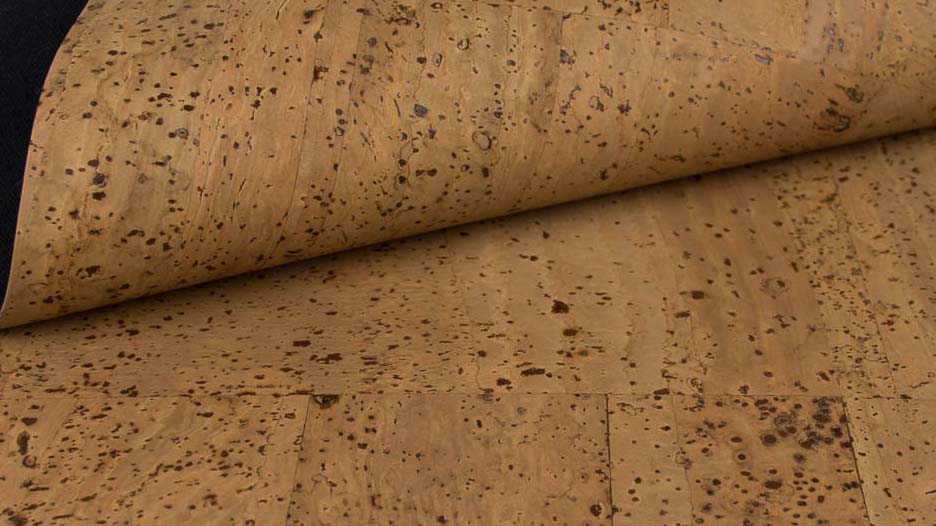Comparing vegan cork leather side-by-side with traditional leathers made from the hides of cattle could easily lead one to the conclusion that cork leather is superior to “real” leather.
Cork Leather is made from the bark of cork trees and is certified by PETA to be 100% vegan. Traditional leather is made from the hides of cows that have been slaughtered for their meat. While this makes cow leather a by-product, which adds to it’s sustainable nature, but under no circumstances can it be considered “Vegan”. Quite the opposite, in fact.
Cork Leather is also planet friendly. Because it, literally, grows on trees it starts off with a huge advantage and a negative carbon footprint. The beef industry, by comparison, emits large amounts of greenhouse gasses during the life of the cow in the form of methane.
The process of converting raw cork bark into beautiful cork leather also has a much smaller environmental footprint when compared to the tannage of cowhides which requires large amounts of water and strong chemicals.
Cow leather is certainly durable, or at lest much of it is. Still the Touch-Pro finish on PortugaliaCork’s cork leather is more durable and more waterproof than any cow leather hide. Cork leather, with the Touch-Pro finish tests out at 120,000 cycles on the test used to compare durability of fabrics. No cow leather can approach that sort of performance.

Cow leather, especially natural aniline-dyed leather from a high-end tannery can certainly be stunningly beautiful but cork has an organic beauty of it’s own. Every piece of cork is just as unique as is every cowhide. Cork is consistently inconsistent as its surface displays the imperfections and patterns we find comforting when we pull a cork stopper from a good bottle of wine.








